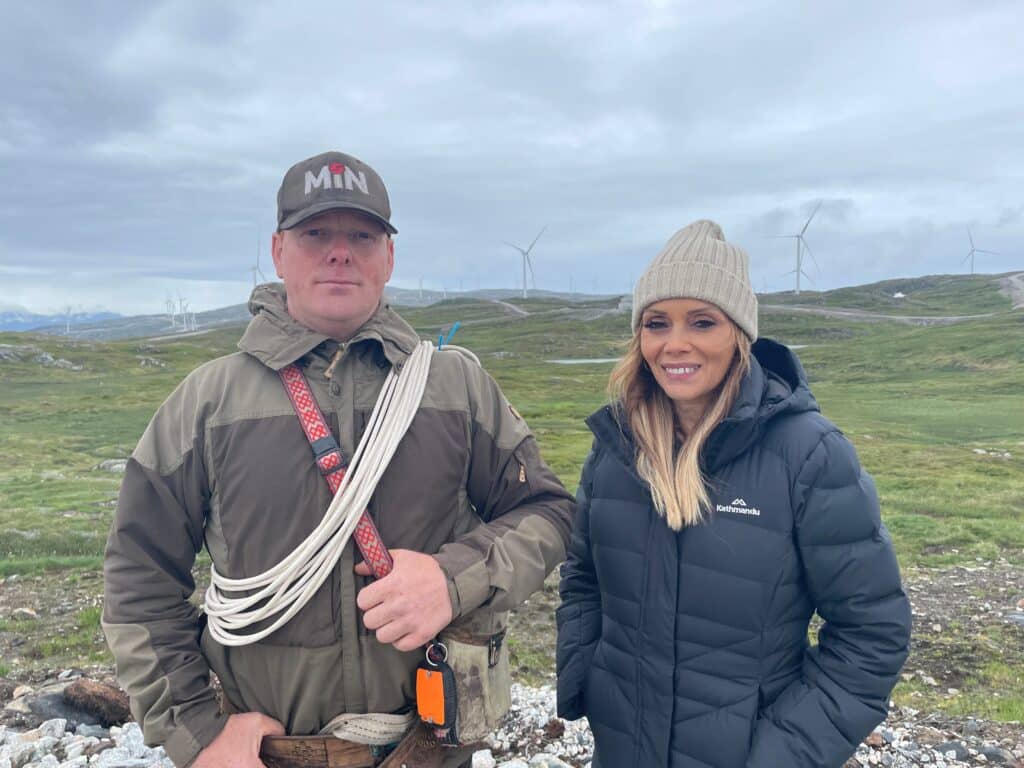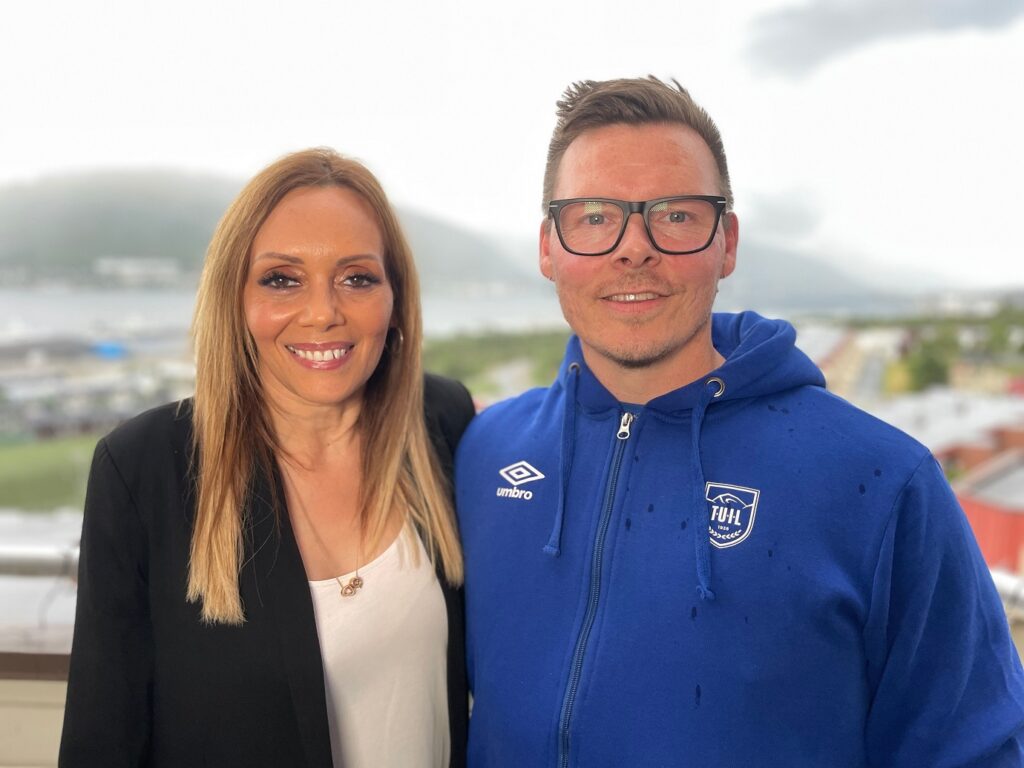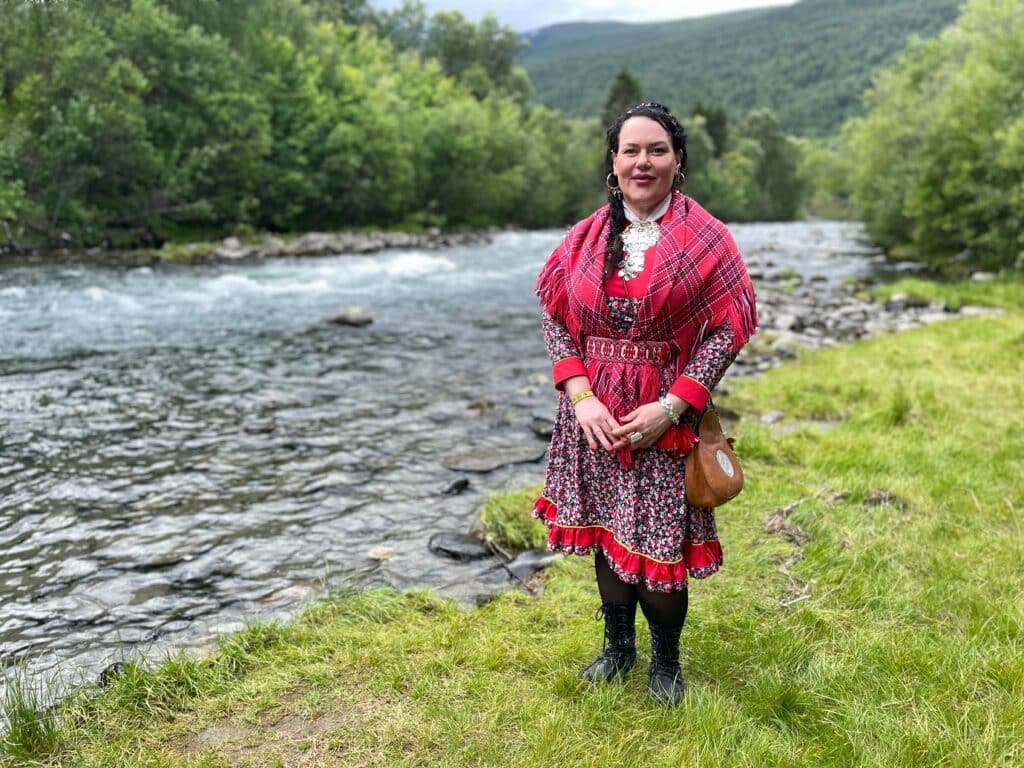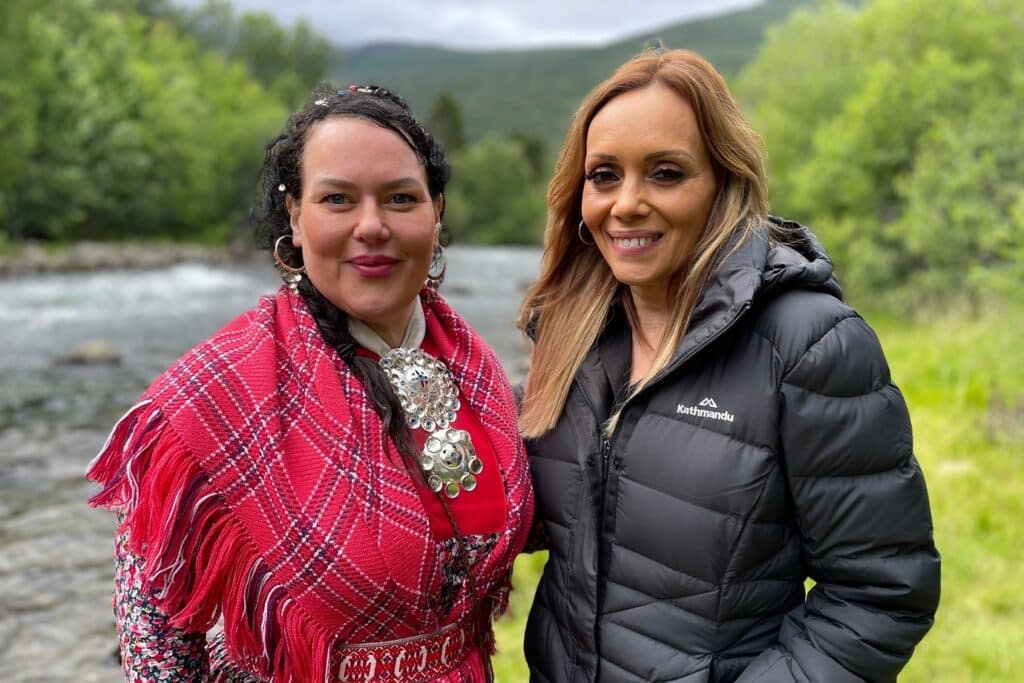Walkley Award-winning journalist Karla Grant says she’s had an “eye opening experience” travelling to Norway to better understand how their Indigenous Voice to Parliament has worked over the past three decades.
In this pertinent episode of Dateline, set to premiere tonight on SBS, the proud Indigenous journalist and beloved Living Black host asks whether or not having a voice in parliament will make a difference to the lives of her people.
In the lead up to Australia’s historic referendum vote to change the constitution to reflect First Nations people, Grant’s deeply personal journey through the Arctic Karla allows her to hear a range of perspectives on the Sámi Indigenous Voice to Parliament, and learn if their voice is actually being heard in the halls of power.
Speaking with Women’s Agenda, Grant says the insightful conversations with the Sámi people demonstrate that, “while the Sámi Parliament model may not be perfect, it has played a huge role in keeping their culture alive and instilling pride within their people.”
“It’s also given them a seat at the table in decision making,” she adds, noting that it has been a huge step forward for their people compared to where they stood as oppressed people without a voice centuries ago.

Parallels across cultures
While filming the episode, Grant says she came across many similarities between Sámi people and First Nations people in Australia, despite the geographical distance.
“I formed a very close bond with the people I met and I easily slipped into conversations with them because of the bond we share as Indigenous people,” she says. “There were many emotional moments as they opened up to me and they said many things I could instantly relate to.”
“For thousands of years the Sámi were persecuted to the point where many denounced their Sámi heritage, they were not able to speak their language, practise their culture or wear their traditional dress,” says Grant.
While many were forced to hide their “Sámi-ness” because of this persecution, Grant says that these days they’re finally able to celebrate their culture and “are stronger than ever in their identity” thanks to the formation of the Sámi parliament in 1989, establishing the right for Sámi to have a say on matters concerning their people.
“Once I heard about this history from many of the Sámi people I spoke to, it was clear to me that the impact of colonisation is something we share and that in itself creates a bond for us as First Nations people facing who have experienced similar struggles, even though we live at opposite ends of the world,” she says.

Insights for Australia
Looking at how the Sámi people’s success in revitalising their culture could potentially translate to Australia, Grant says one of the initiatives she’d love to see replicated is funding to teach children their language and culture from an early age.
In Norway, Grant says “ One initiative provides funding to those working in kindergartens and gives out language grants so that infants attending kindy can learn the Sámi language.”
“This would be a wonderful initiative to have in our own kindergartens as well as primary and high schools for Indigenous kids to learn their own Aboriginal language.”
“I wish that my mother and grandparents had been able to teach me our language so that I could in turn pass that on to my own children,” she says. “I feel that language is a huge part of our identity as a people and for me that part is missing.”

Will the Voice to Parliament make a difference?
From speaking with the Sámi, Grant says she’s been able to conclude that while there’s no perfect model, the Voice to Parliament has potential to give First Nations people a seat at the decision-making table, revitalise culture and strengthen Indigenous identity.
“From speaking with Sámi from different walks of life during the course of filming this story, and after learning about their history and hearing about how their Parliament works, I can see where it has made a difference and I can see where it is struggling,” says Grant.
Amongst it all, however, she says the Sámi are in a “far better” place from where they were before they were given a voice.
“When you take a step back and look at it, the Sámi Parliament has been in existence for 34 years,” says Grant. “Nothing bad has happened to Norwegian people or their country, the sky has not fallen.”
“And while it hasn’t been an easy path the Sámi will continue to fight for the rights of their people.”

Watch Dateline’s The Sámi People episode on Tuesday 19th September at 9.30pm on SBS, SBS On Demand and NITV and visit the SBS Voice Referendum portal and SBS On Demand Voice referendum hub to be informed, in your preferred language.


